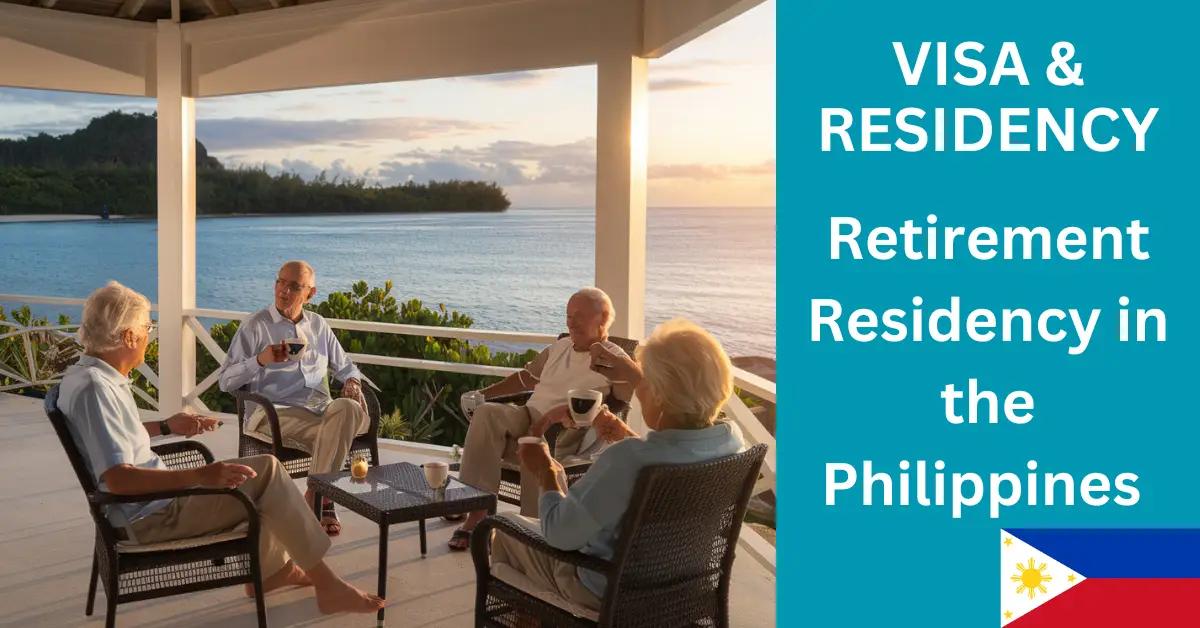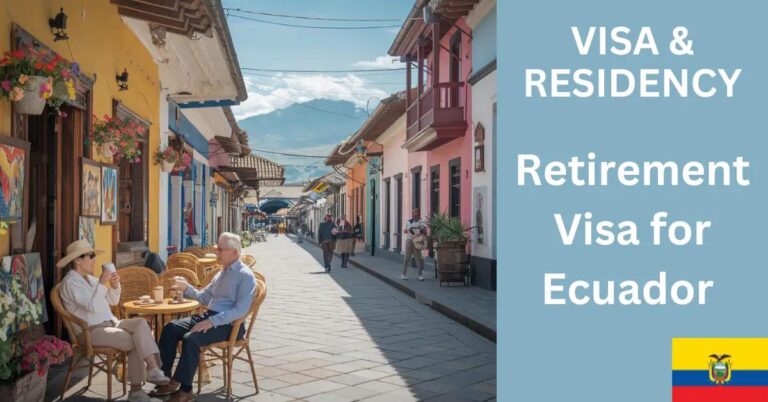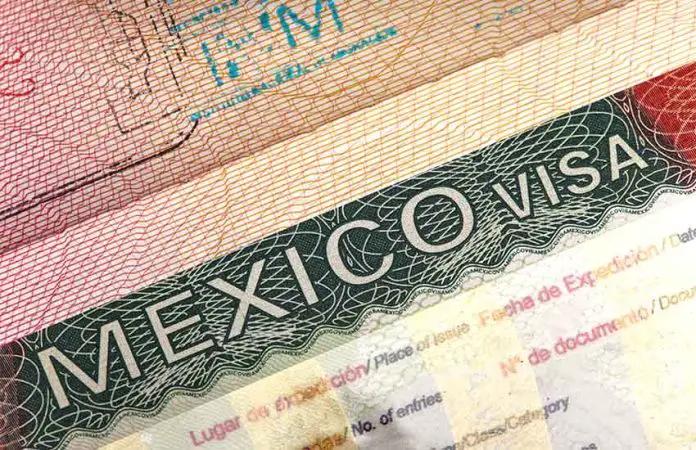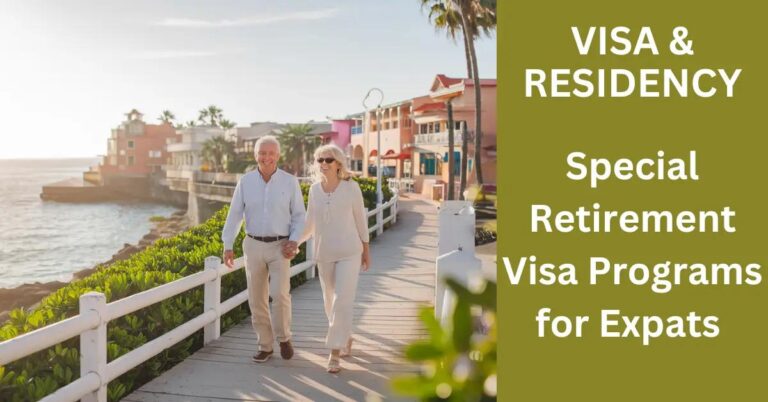TL;DR:
- The Philippines offers the Special Resident Retiree's Visa (SRRV) to expats aged 50+ with a pension of $800/month or required bank deposit.
- Expect changes to retirement visas in 2024, improving clarity and service.
- US citizens need specific documents and a local bank deposit to apply for the SRRV.
- Average monthly living costs range from $800 to $1,200; Cebu and Davao offer lower costs.
- Healthcare varies; urban areas provide better quality care, often prompting retirees to choose private hospitals.
- Key retirement spots include Cebu, Palawan, and Dumaguete, each offering unique benefits.
- Effective financial management involves planning for taxes, investments, and opening local bank accounts.
- Social opportunities are abundant, including expat networks, volunteer projects, and local community engagement.
Thinking of retiring abroad and wondering if the Philippines is right for you? Let me guide you through the ins and outs of retirement residency in this tropical paradise. From the Special Resident Retiree's Visa (SRRV) to the costs of living and beyond, we’ll decode the essentials. Find out if sunny beaches and vibrant culture match your retirement dreams. Ready to dive in? Let's explore!
What Are the Retirement Visa Options for Expats?
Retirement residency in the Philippines is an inviting option for many. The country's Special Resident Retiree’s Visa (SRRV) offers a popular path for senior citizens. To qualify, you must be at least 50 years old. You also need a pension of at least $800 per month. Alternatively, you can deposit a certain amount as a retiree visa requirement. This deposit ranges based on age and benefits you want.
In 2024, some changes are coming to the Philippines retirement visa. These updates ensure clarity and better services for retirees. When visa suspensions occur, like during the pandemic, expats need alternatives. Other residency options include work or investment visas. Sometimes, the Philippines government updates the processes.
To gain permanent residency, start by obtaining legal residency status. The requirements include holding a valid visa and staying in the country for a certain time. You typically need a Filipino spouse or Philippine roots for this process. This path requires patience but offers a lasting solution for those who don't qualify for the SRRV.
For the most current information, check with the Bureau of Immigration. They provide updates and detailed guidance. Understanding these visa options helps you decide if the Philippines is your retirement destination.
How Can US Citizens Retire in the Philippines?
Yes, you can retire in the Philippines as a US citizen. It offers the Special Resident Retiree's Visa (SRRV). This visa lets you live in the Philippines and enjoy its beauty. To apply, visit the Philippine Retirement Authority's website and complete the forms needed.
For the application process, you will need your birth certificate, passport, and a health certificate. Make sure you also have a police clearance from your home country. An important requirement is a deposit in a local bank. The amount varies depending on your age and plans.
Planning your finances is crucial. The cost of living is lower, but you should still budget well. You need to think about healthcare, daily expenses, and unexpected costs. Most retirees find living on a budget easy with proper planning.
When retiring abroad, you must consider legal and tax issues. You will need to check if there are any taxes on your retirement income. Consulting with a tax expert can help clear up any doubts.
Living in the Philippines means adapting to a new lifestyle and culture. You will need to embrace local customs and possibly learn some Filipino, the local language. Friendly locals make the transition smoother.
The SRRV offers a way for US citizens to stay in the Philippines permanently. This retirement residency is a great opportunity for those who wish to enjoy a tropical setting. With careful planning and understanding of the process, retirement in the Philippines can be a rewarding and fulfilling choice.
What Is the Cost of Living for Retirees in the Philippines?
Retiring in the Philippines can be a good choice. But, understanding the cost of living is key. So, let's dive into the numbers and factors involved.
Average Monthly Expenses for Expats: If you retire here, expect costs between $800 to $1,200 monthly. This includes rent, food, utilities, and health care. Housing often takes the biggest chunk of the budget. Apartments may cost $300 to $500 monthly in cities.
Comparison to Other Southeast Asian Countries: Costs here are often lower than in Thailand or Malaysia. The Philippines offers good value for basics. Eating out and shopping can be cheaper, too.
Budget-Friendly Locations in the Philippines: Choose wisely where to live. Cities like Dumaguete or Davao are cheaper than Manila. These places offer a peaceful life at a low price.
Tips for Managing Day-to-Day Finances: Create a budget and stick to it. Use local markets for food and daily needs. Public transport or shared rides are cheaper than owning a car.
Impact of Exchange Rates on Cost of Living: This can make a big impact. Your home currency can change in value. Watch this to know how much money you really have.
Retirement residency in the Philippines has its perks, like friendly locals and great scenery. But, always check up-to-date costs. Also, research areas to find what suits your needs best. If you can manage your finances well, living here can be rewarding.
What Are the Best Places to Retire in the Philippines?
When choosing a retirement spot in the Philippines, there are many choices. Some of the most affordable places to retire in the Philippines have beautiful views and rich culture.
Where do foreigners retire in the Philippines? The answer often includes Cebu and many others. Cebu city is a favorite among expats for its mix of city life and nature. It has many malls, restaurants, and a low cost of living. Cebu also offers access to lovely beaches and islands nearby.
Let's look at key factors to consider when picking your spot in the Philippines. You should think about climate, cost of living, and access to healthcare. Safety is also important for many retirees looking to settle down. Each location has its charm and lifestyle, so visit first if you can.
If you love the sea, coastal and beachside living options are plenty. You can find popular beaches and islands where retirees live and enjoy the sun and sand every day. Consider places like Palawan or Dumaguete for close-knit communities and serene beach living.
Expats in major Philippine cities enjoy community and support. Cities like Manila and Davao have vibrant expat communities where you can meet new friends. These places also offer expat-friendly environments with familiar products and services.
The Philippines promises varied options for retirees. Deciding where to stay can be a fun journey itself. Consider visiting a few spots before settling. That way, you find a place that truly feels like home. Find the place that fits your dreams, budget, and needs best for a smooth transition into retirement.
How to Navigate Healthcare and Medical Services?
Navigating healthcare in the Philippines can be quite different from what you're used to. The healthcare system here is a mix of public and private services. Costs for medical care vary, depending on the type of service you choose. Private hospitals are generally more expensive but offer better facilities and care quality. Many retirees opt for private care due to its high standard.
Access to medical facilities is widespread, but the quality can differ. In urban areas, healthcare services are modern and reliable. Rural areas might have fewer facilities, but they still provide basic care. If you want top-notch care, seek hospitals in cities like Manila or Cebu.
Finding the right healthcare provider involves checking their reputation and specialties. Ask other expats for recommendations. Visiting a few clinics or hospitals before deciding can give you a better sense of what’s available. It’s essential to have a list of reliable providers near your residence.
When thinking about insurance, remember it can save you money in the long run. Some insurers offer plans made for retirees, covering many services. Confirm that your retirement healthcare plan covers emergencies. It’s also wise to understand the costs covered both locally and internationally.
In emergencies, the quality of ambulance services can differ. Knowing where the closest hospital is can help during urgent times. Always keep emergency phone numbers handy. Some expatriates also join expat groups that share healthcare tips and advice.
Lastly, focusing on wellness is crucial. Engage in community activities that promote health and wellness. Staying physically active and social contributes to a happy retirement. With the right planning and resources, you can enjoy your retirement in the Philippines worry-free.
What Are the Cultural and Lifestyle Considerations?
Are you ready to embrace the vibrant life in the Philippines? Understanding Filipino culture makes integration smoother. Filipinos are known for hospitality. They love to share food, music, and stories. This creates a warm welcome for newcomers.
To ease into the culture, start exploring local traditions. Join festivals like Sinulog and Ati-Atihan. These events offer rich experiences and cultural learning. Engaging in local communities also bridges gaps. Attend community events and join clubs. They provide a sense of belonging.
Language might seem like a huge barrier at first. Filipino and English are official languages. Yet, learning basic Filipino phrases helps a lot. It shows respect and interest in their culture. This can break down communication walls.
Your everyday life will have new flavors. Filipino cuisine is tasty and diverse. Try dishes like adobo, pancit, and lechon. Eating at a carinderia can be a delightful adventure. It offers authentic local meals at a friendly price.
Adapting to daily life might take patience. The pace could be slower than you're used to. Traffic may get a bit hectic. Public transport varies from jeepneys to tricycles. Learning to navigate these will ease your movement around town.
Opportunities to learn and explore are everywhere. Visit historical sites, local markets, and museums. Each trip deepens your cultural wisdom. The people you meet become teachers of life’s traditions.
Adjustments are part of the process. Embrace them with an open heart. You gain a deeper understanding of the Philippines. These changes soon turn into cherished memories. The vibrant culture enriches your retirement life in ways unexpected.
How Can Retirees Manage Their Finances Effectively?
Living in the Philippines as a retiree brings joy, but finances can be tricky. One of the first things you need is a solid financial plan. Make sure you understand the cost of living here. It can vary depending on where you decide to settle. Knowing your monthly expenses will help you avoid surprises.
When it comes to investment options, the Philippines offers a mix. Real estate can be appealing, especially in popular areas. Stocks and mutual funds are also worth exploring. However, be cautious and do thorough research or consult a trusted local advisor. Knowledge about local markets is key.
Managing pensions and savings from abroad needs careful handling. It is crucial to check with your pension provider about receiving funds while overseas. Open a local bank account that allows international transfers. Look into international retirement savings accounts to find flexible options that suit an expatriate lifestyle.
Taxes are another important consideration. The local tax rules for retirees can be complex. It's smart to get familiar with any tax obligations or benefits you might qualify for. Some retirees might benefit from tax treaties between their home country and the Philippines. Seeking advice from a tax expert can save money and stress.
Finding financial advice and support services is not too hard. Many financial institutions in the Philippines provide services for expatriates. Seek professionals who understand the needs of retirees. Join expat communities online to get and share experiences that can lead you to reliable advisors.
In summary, effective financial planning in the Philippines starts with understanding costs and opportunities. Investment in proper channels allows a comfortable life. Managing pensions and taxes requires attention and, often, expert guidance. Being proactive with financial strategies makes retirement abroad smoother and more enjoyable.
What Social Opportunities Are Available for Retirees?
Social life is important, especially when you are retiring far from home. In the Philippines, a wide range of options exists to help retirees build a robust social network. Expats and local retirees often connect through various clubs and organizations. These groups can support your journey in a new country.
The expat community in the Philippines is vibrant and welcoming. You will find many retiree networks and support groups. They organize events and gatherings, making it easy to make new friends. Joining expat clubs and organizations gives you a chance to connect with like-minded people.
To get involved, consider both online and in-person networks. Many online forums and social media groups offer advice and opportunities to meet up. SRRV support networks are also in place to help retirees with the Special Resident Retiree's Visa. These communities provide information and social support, easing the transition for new arrivals.
It's not all about clubs and groups; volunteer opportunities abound. Engaging in community programs lets retirees give back and meet people. You can help at local schools, hospitals, or environmental projects. Such activities keep you active and introduce you to both locals and other expats.
Building meaningful connections in a new country can take time. Be open to meeting new people in your neighborhood or during routine activities. Attend local markets or take part in community events to blend into everyday life in the Philippines.
The opportunities for creating friendships and connections are diverse and abundant. Whether through expat clubs or community service, there’s a place for everyone. Connecting with others will enrich your retirement years, making your time in the Philippines enjoyable and fulfilling. Explore these avenues to enhance your social experiences and build lasting friendships in your new home.
Conclusion
You've got options for retiring in the Philippines. We've walked through the SRRV and other choices. From visa steps to managing your budget, planning is key. Healthcare, culture, and social life matter too. Choose a city that suits your lifestyle. With a solid plan, you can enjoy your expat journey. Retiring in the Philippines can be a rewarding adventure. Embrace each step to savor a fulfilling life abroad. Enjoy the vibrant culture, and make the most of your new home. Your expat journey awaits—dive into it fully!







